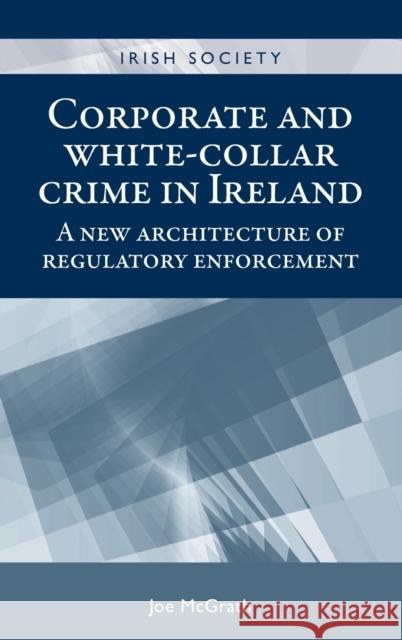Corporate and White-Collar Crime in Ireland: A New Architecture of Regulatory Enforcement » książka
Corporate and White-Collar Crime in Ireland: A New Architecture of Regulatory Enforcement
ISBN-13: 9780719090660 / Angielski / Twarda / 2015 / 224 str.
This is the first definitive examination of the practice of corporate regulation and enforcement from the foundation of the Irish State to the present day. Traditionally, corporate wrongdoing was often criminalised using conventional criminal justice methods and the ordinary police were often charged with the responsibility of enforcing the law. Since the 1990s, however, the conventional crime monopoly on corporate deviancy has become fragmented because a variety of specialist, interdisciplinary agencies with enhanced powers now address corporate wrongdoing. The exclusive dominance of conventional crime methods has also faded because corporate wrongdoing is now specifically addressed by a pyramidal enforcement architecture, taking compliance orientated and sanctioning approaches, using both civil and criminal enforcement mechanisms, where criminal law is now the sanction of last resort.
Corporate and white-collar crime in Ireland is the first monograph to analyse the transition in Ireland from a sanctioning, 'command and control' model of corporate enforcement to the compliance-orientated regulatory model. It is also unique in locating this shift in its broader sociological and jurisprudential context. As such, the distinctive contribution of this volume is not in the analysis of corporate or white-collar crimes but rather in its analysis of the emerging legal architecture which attempts to manage rather than punish crime. It provides a definitive account of a State at a critical stage of its economic development, having moved from an agrarian and protected society to a free-market globalised economy which is trying to cope with the negative aspects of increased corporate activity, having experienced an economic boom and depression in a remarkably condensed period of time.











